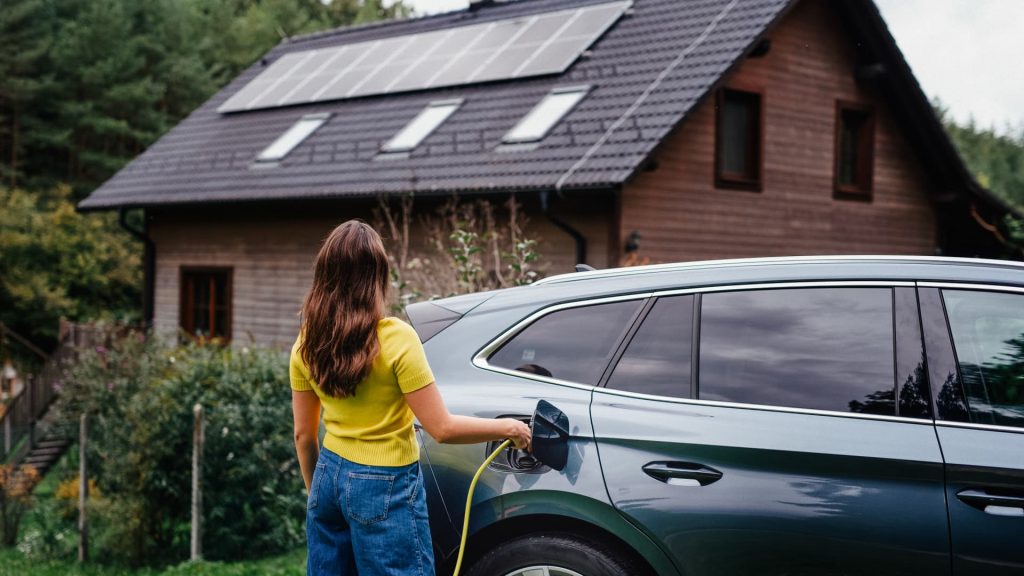Halfpoint Images | Moment | Getty Images
Legislation that Republicans are trying to pass by the Fourth of July would end a slew of popular consumer tax breaks tied to clean energy, leading some experts to call on households to act now to collect the savings.
Many tax breaks on the chopping block were created, extended or enhanced by the Inflation Reduction Act, a 2022 law signed by former President Joe Biden that provided a historic U.S. investment to fight climate change.
More from Personal Finance:
3 student loan changes in GOP megabill
Not all vehicles may qualify for tax break on car loan interest
Senate version of ‘big beautiful’ bill calls for $6,000 senior ‘bonus’
The Senate may vote on its measure, part of a broader package of domestic policy initiatives, as soon as next week. The House passed its version of the One Big Beautiful Bill Act in May.
Both bills would eliminate tax credits for households that buy or lease electric vehicles, or that make their homes more energy efficient.
“The intention of Republicans writing the bill is to root out all of the incentives from moving away from fossil fuels that the Biden administration puts in place, and it’s just a question of timeline,” said Matt Gardner, senior fellow at the Institute on Taxation and Economic Policy.
GOP set to end many clean energy tax breaks in 2026
Republicans would use money from the clean energy tax breaks — as well as cuts to food assistance and healthcare programs like Medicaid — to help pay for a broader multitrillion-dollar package of tax cuts for households and businesses, among other policy priorities.
The “One Big Beautiful Bill Act,” which House Republicans passed in May, would end a tax credit of up to $7,500 for qualifying households that buy a new electric vehicle and a $4,000 credit for those who buy a used EV.
It would also end a separate tax incentive that allowed car dealers to pass along a $7,500 credit to consumers who lease an electric vehicle.
Additionally, the House bill would end the energy efficient home improvement credit (also known as the 25C credit) and residential clean energy credit (the 25D credit), which help consumers defray the cost of projects like installing insulation, solar panels, heat pumps, and installing energy-efficient windows and doors.
With few exceptions, these tax breaks would disappear in 2026, about seven years earlier than under current law, which makes them available through 2032.
Senate Republicans, who haven’t yet passed their version of the legislation, would end these tax breaks under a similar timeline.
For example, the tax credit for used EVs would end 90 days after the law’s enactment. The credits for new and leased EVs, as well as the ones tied to energy efficiency, would disappear after 180 days.
Advocates for preserving the tax credits argue that getting rid of the tax breaks would raise monthly bills for U.S. households and businesses.
A group of 21 House GOP lawmakers in March expressed support for preserving clean energy tax credits, in a letter to Rep. Jason Smith, R-MO, chairman of the House Ways and Means tax-writing committee.
“As our conference works to make energy prices more affordable, tax reforms that would raise energy costs for hard working Americans would be contrary to this goal,” they wrote.
Consumers who want to ensure they get a federal tax break for buying an EV or undergoing an energy-efficiency home project should act soon, according to experts.
“Based on the existing proposed language, if you’ve been considering an EV or planning to get one, now is the time to do it,” Alexia Melendez Martineau, senior policy manager at Plug In America, told CNBC recently.
The legislation may change in the Senate, which may vote on the massive domestic policy measure as soon as next week. If there are changes, the House would have to pass the legislation before sending it to President Trump’s desk.

